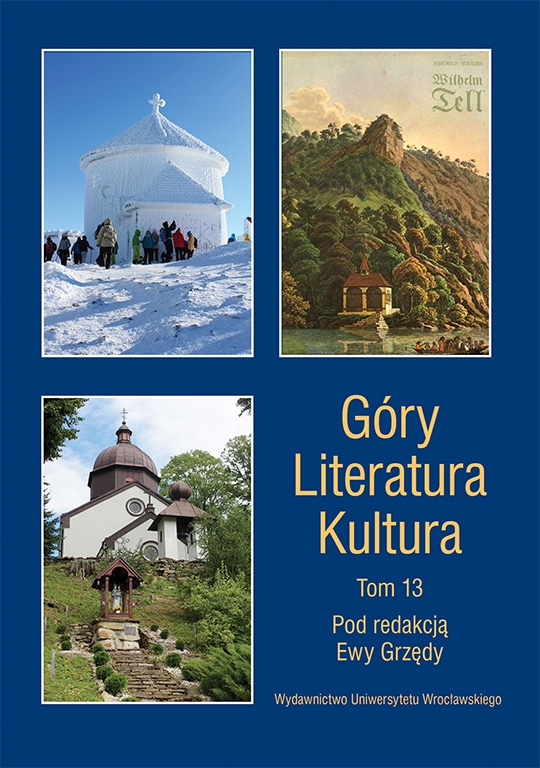

Rozprawy, studia, szkice

The Caucasian “mountain” literature expressed moods which generally influenced a romantic view of landscape: a feeling that the world was breaking up; a desire to escape from people and civilisation (combined with an attempt to find other, higher, supraterrestrial harmony as well as attempts to establish more direct, personal contact with God); an aversion to the present leading to an escape into contemplation; interest in nature as a mysterious force encompassing God, history and presentiment of the future. In poetic and prose works written by exiles the mountains were idealised usually by their sacralisation and elevation, as well as highlighting of their hierophanic aspect (prayer-like and meditation-like forms of poetry); idealisation was sought also through the poetics of dream. Sometimes works by the “Caucasians” echoed with sentimental raptures over the naturalness of the mountains (this was accompanied by a profound belief in the physical and moral superiority of highlanders over “civilised” people). However, being in exile usually did not make it possible to simply refer to the pastoral-Arcadian tradition, which in any case seemed a little archaic when compared with Romanticism. Even if the old idyllic model was occasionally referred to, it was usually immediately juxtaposed with the brutal historical reality. Thus the only remaining option was to go back to even older sources of the perception of the mountains in ideal terms: to the Book of Genesis, biblical topoi and archetypal-symbolic approaches, and to use a mystical style of interpreting landscape. These perspectives made it possible to reduce the contemporary context and transfer the semantics of works to the uplifting sphere of transcendence. The mountains became an embodiment of a lost ideal — violated but enduring, immutable and, importantly, to be made reality in the eschatological future. The popularity of the paradisal archetype was guaranteed by the incontrovertibility of hope.